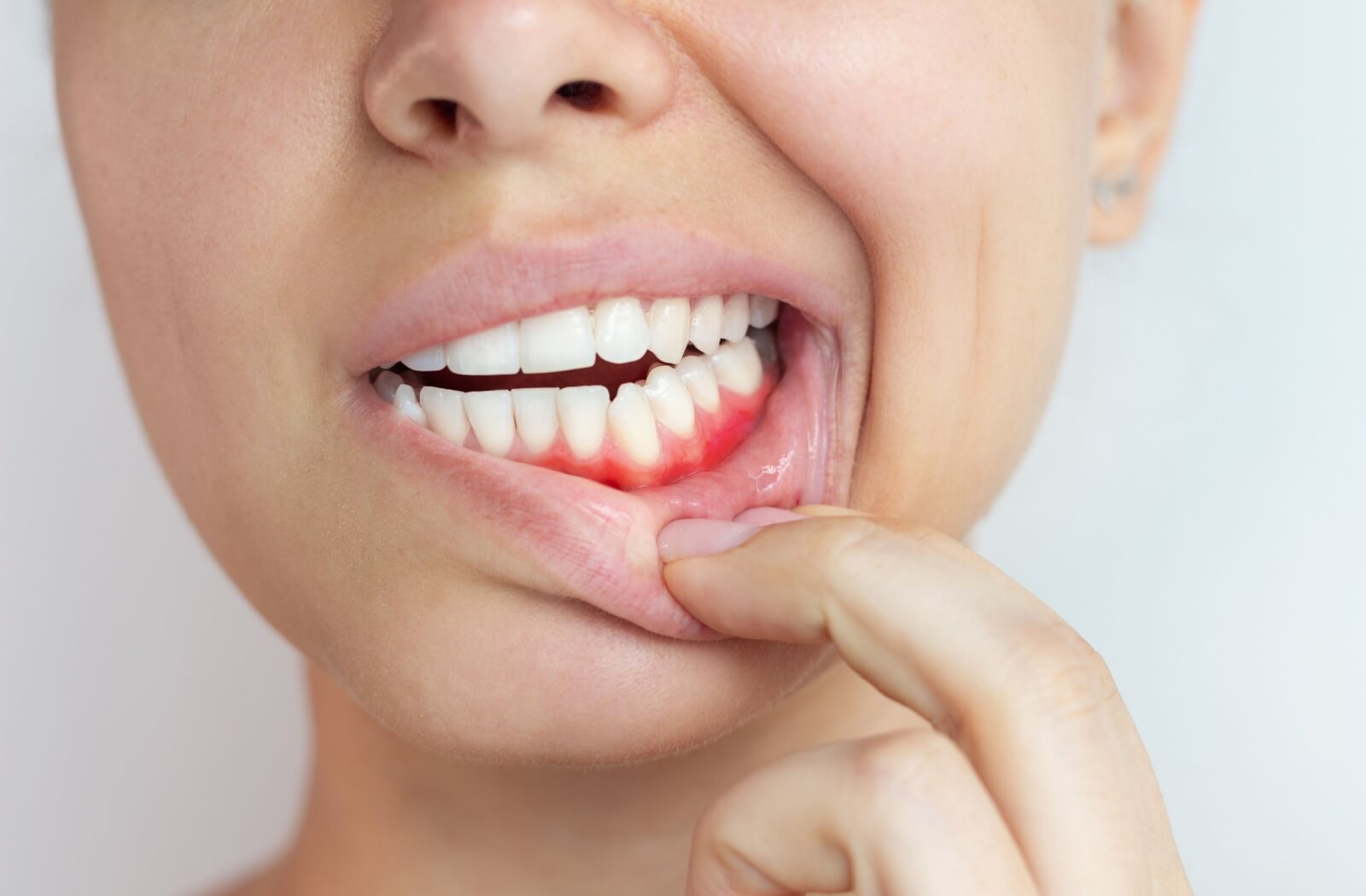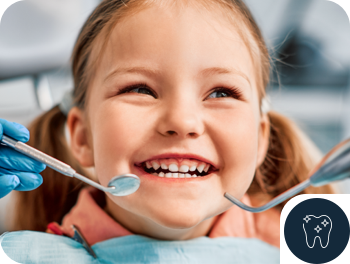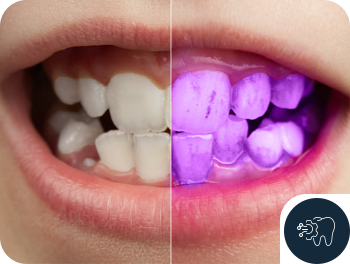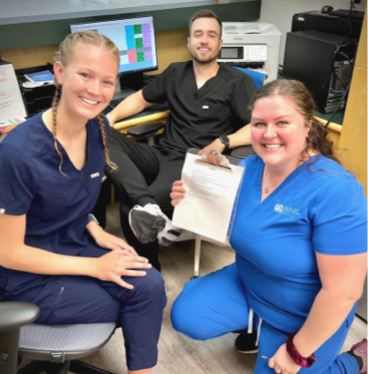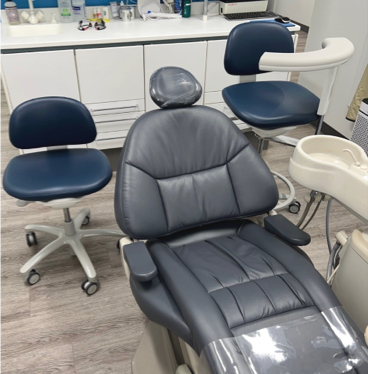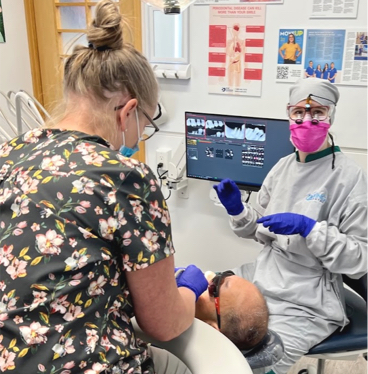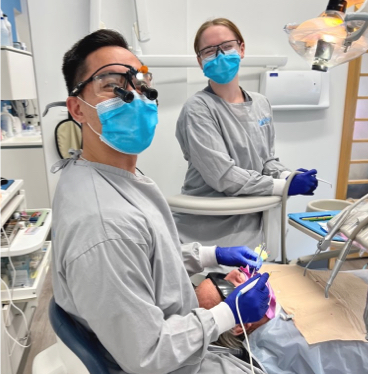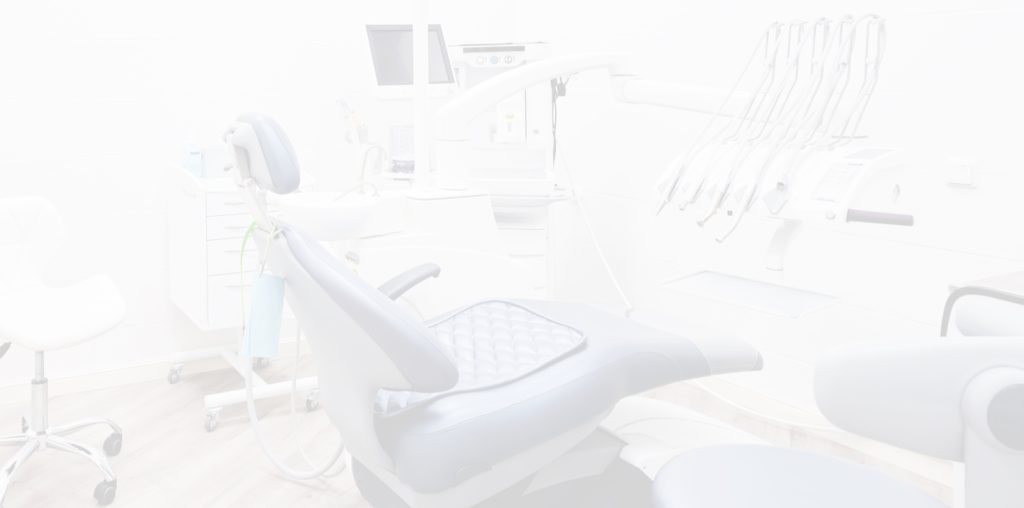Gum or periodontal disease is a common condition that affects the gums and bone that support your teeth. Many people wonder whether this condition can pass from person to person.
Periodontal disease isn’t contagious like a cold or the flu. However, the bacteria that cause gum inflammation can be passed between people through saliva. This transfer doesn’t automatically mean you will develop gum disease, as other factors like genetics and your personal oral hygiene practices play a significant role.
The Spread of Gum Disease Bacteria
The bacteria that contribute to gum disease live in our mouths. When these bacteria are shared, it’s usually through direct contact with saliva. Your personal risk of developing gum disease depends more on your own oral health habits and immune response than occasional exposure to bacteria from others.
How Bacteria Can Pass Between People
Sharing saliva is the main way these bacteria move from person to person. This can happen through all sorts of everyday activities, including:
- Kissing your partner or children
- Sharing forks, spoons, or cups
- Using someone else’s toothbrush
Ensuring proper dental care for children and other family members can help minimize the spread of harmful bacteria within a household.
Can You Still Kiss with Gum Disease?
A single kiss is very unlikely to cause a problem for a person with a healthy mouth. However, repeated and long-term contact with a person who has active gum disease can increase the number of harmful bacteria that form plaque in your mouth. This can elevate your own risk of developing gum-related issues over time.
Know the Signs of Gum Disease
It’s helpful to recognize the early signs of gum disease, so you can address them promptly. If you notice any changes in your gums or teeth, scheduling a dental appointment is a good proactive step. Your dentist can assess your gum health and discuss any concerns you have.
Pay attention to these common indicators:
- Gums that bleed easily when you brush or floss
- Red, swollen, or tender gums
- Persistent bad breath that doesn’t go away
- Pain or discomfort when you chew
- Teeth that feel loose or have shifted
- Increased tooth sensitivity
Your Role in Gum Disease Prevention
Prevention often comes down to simple, consistent habits you practice every day. Your daily choices make a significant difference in your long-term oral health.
Daily Oral Health Habits
Your routine at home is the foundation of healthy gums. A consistent and thorough approach can effectively remove plaque before it causes problems. You can maintain your oral health with these three simple steps.
- Brush your teeth for two minutes, two times a day.
- Floss between your teeth at least once daily.
- Consider using a therapeutic mouthwash to help reduce bacteria.
The Value of Regular Dental Visits
Professional cleanings and check-ups are also a key part of prevention. Your dental team can remove hardened plaque—known as tartar—that you can’t get rid of with a toothbrush at home. Regular visits can also help detect the first stage of gum disease, gingivitis, when it is still reversible.
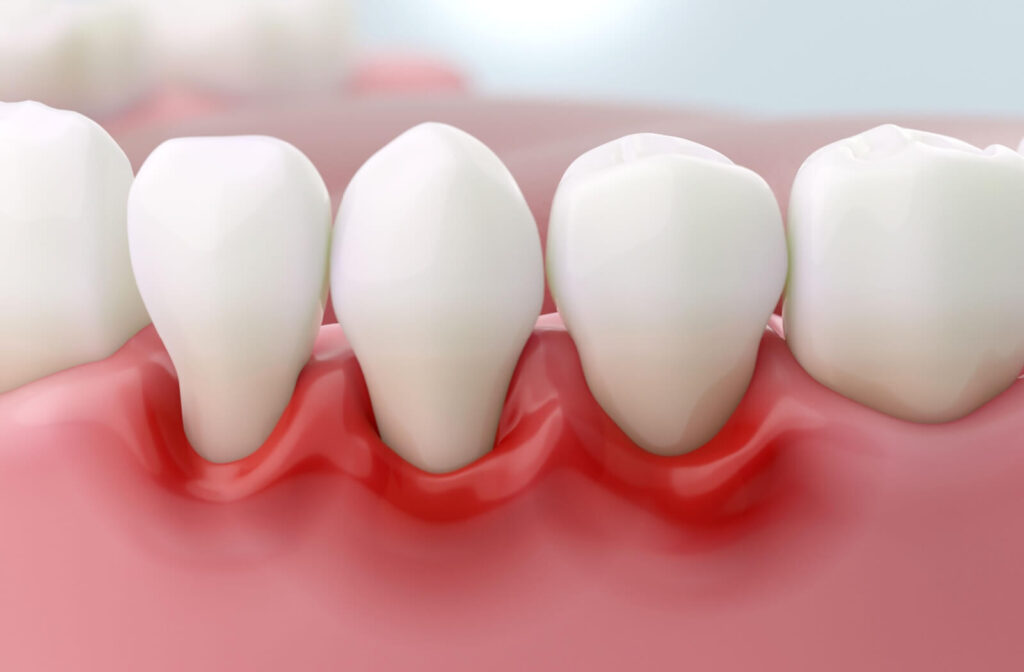
Treatment Options for Gum Disease
If you do develop gum disease, effective treatments are available. The right approach for you depends on how far the condition has progressed. Your dental team can recommend a plan tailored to your specific needs.
Treatments for Early Gum Disease
For early-stage gum disease, or gingivitis, professional cleanings and improved home care may be all that is needed to reverse the condition. For slightly more advanced cases, a deep cleaning procedure called scaling and root planing can help. This treatment removes plaque and tartar from below the gum line to help your gums heal.
Treatments for More Advanced Cases
When gum disease becomes more serious, it’s called periodontitis and may require different procedures to restore your oral health. Your dentist might suggest treatments designed to save your teeth and bone structure. These can include:
- Pocket reduction surgery to clean the roots of teeth
- Bone and gum grafts to help regenerate lost tissue
- Guided tissue regeneration to encourage healthy growth
Is a Cure for Gum Disease Possible?
Gingivitis, the earliest stage of gum disease, is reversible with professional care and diligent home hygiene. Once gum disease progresses and causes bone loss, it’s no longer considered curable, but it is still manageable. With proper treatment and consistent care, you can control the condition and maintain your oral health for years to come.
Gum Health & Your Overall Well-being
The health of your mouth is closely connected to the health of your entire body. The inflammation and bacteria associated with gum disease can affect more than just your teeth and gums. That’s why taking care of your oral health is an important part of your overall wellness routine.
The Mouth & Body Connection
An unhealthy mouth can contribute to other health issues in the body. For example, research has pointed to links between periodontal disease and other conditions like diabetes and heart disease. As your dentist in Peace River, we can be a valuable partner in your journey toward total body health.
Protect Your Oral Health
At Wing Dental, we’re committed to helping you understand and manage your oral health. If you have any concerns about your gums or want to schedule a check-up, our team is here to provide professional and approachable care. Contact us today or book your next appointment.


